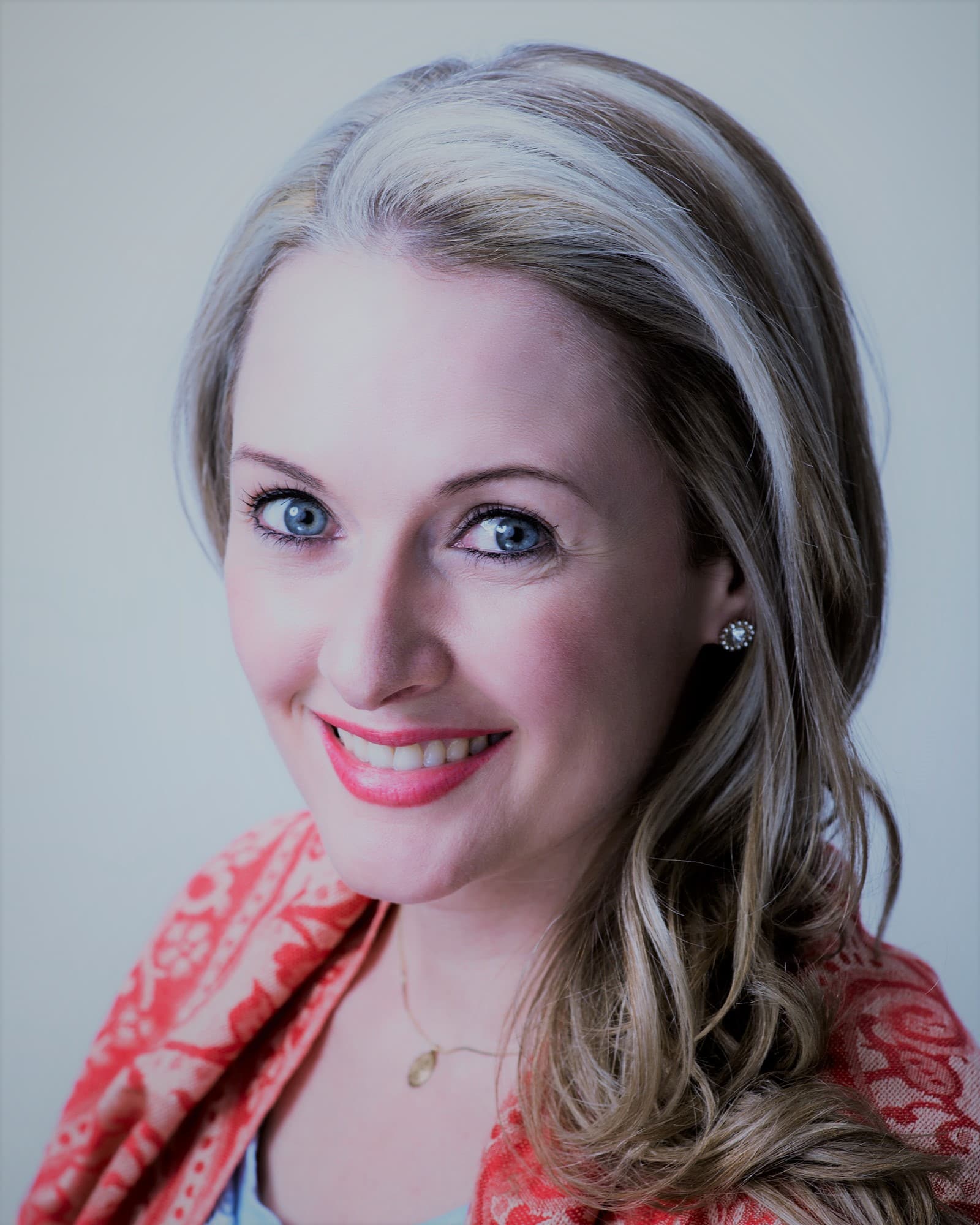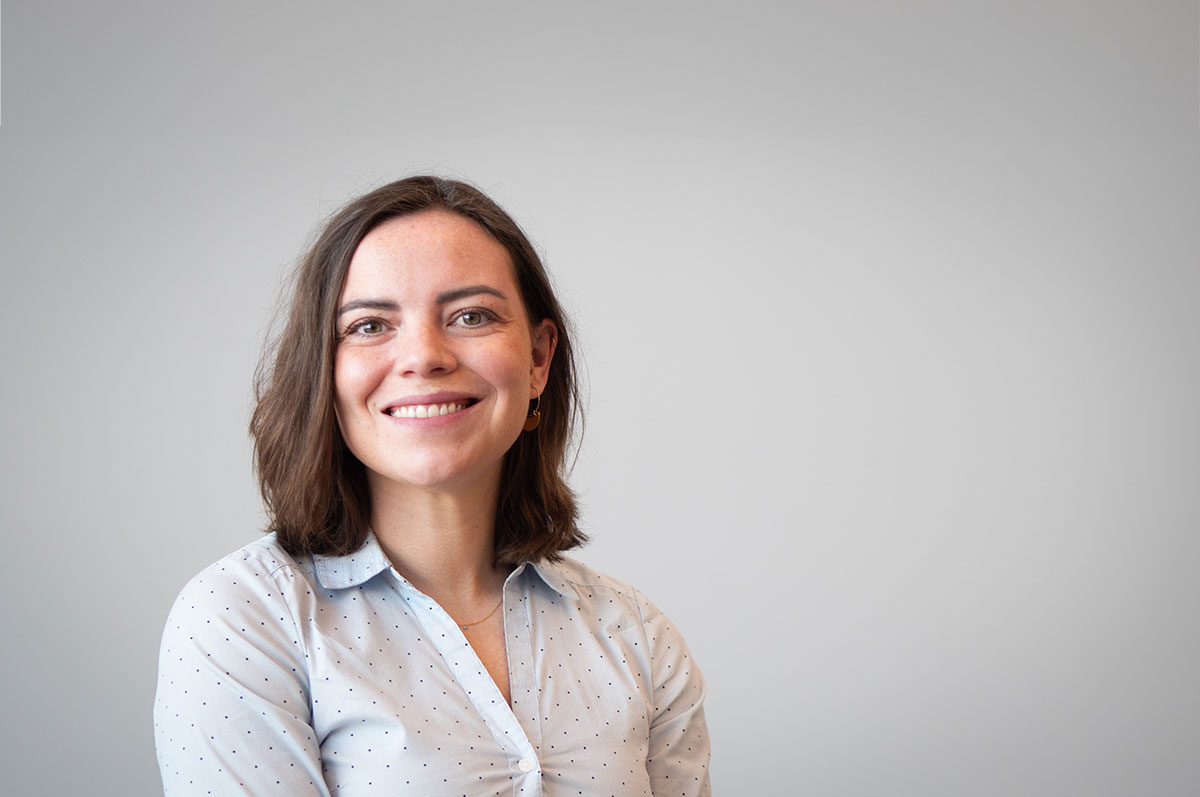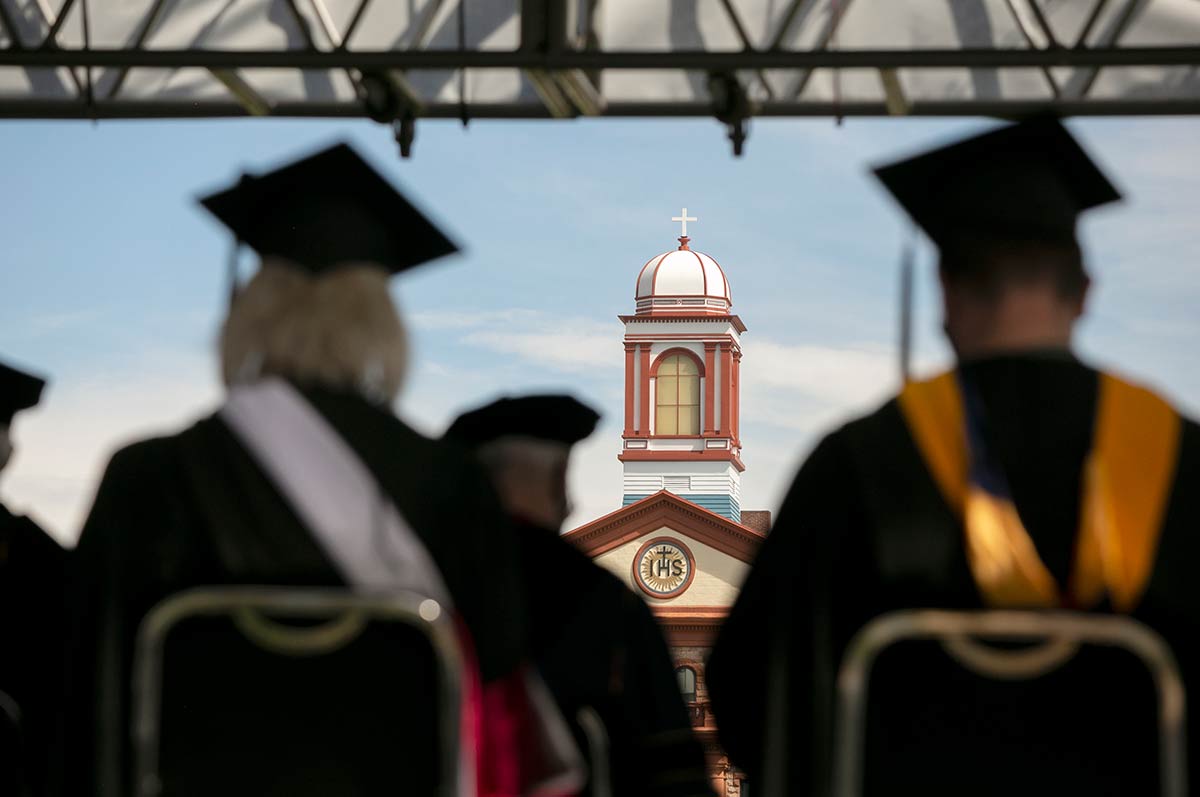Searching for Connection
Professor's winding path, research in Middle East lead to interdisciplinary book
Before she was a Regis professor, Erica Ferg was researching her religious studies dissertation when she stumbled upon a few historical figures who made her wonder.
The more research she did, the more similarities she found between St. George in Christianity, al-Khidr in Islam and Elijah in Judaism. She saw that these figures were not only venerated between religious communities, they held similar roles: Each was associated with rain, greenness, fertility and storms.
To Ferg, this reinforced a larger theme she was exploring: that connections among the three colossal world religions run deeper than meets the eye.
“Religions, like most things, never exist in a vacuum, untouched by other ideas ... These religious traditions, in particular in that area of the world, are all sort of informing one another as they grow and evolve together,” she said.
Her research led not only to a successful dissertation, but also to her first book, “Geography, Religion, Gods, and Saints in the Eastern Mediterranean.” The 288-page book, published earlier this year, expands on her dissertation topic, emphasizing the intertwining factors and shared practices that shape world religions.
Ferg’s intimate knowledge of such interconnectedness doesn’t only stem from her extensive academic research. She also has lived in five Eastern Mediterranean nations and learned nine languages — including Persian, which she mastered while serving as a linguist in the United States Air Force.

By her fourth and final year in the Air Force, although she was proud of the important work she was doing for national security, she sensed her linguistic work was not being used to its full potential. She felt a pull toward academia. “Ultimately, I thought, I want to be able to do this in a wider way,” she said.
With her interest in the Middle East piqued, she packed her bags in 2004 for months of research on behalf of an institute at the University of Denver, traveling to Jordan, Cyprus, Lebanon, Israel and Palestine. During that time, Ferg fell in love with the region — so interconnected yet so diverse. “The way that oftentimes the Middle East or the Muslim-majority world is talked about is as though it’s just a monolithic space,” she said. “But every place is so different culturally, and linguistically, even.”
As she continued to research the region, she encountered the figures that captured her imagination — St. George, Al-Khidr and Elijah. When she returned stateside and started a master’s program in religious studies at DU, she wrote her dissertation about the trio, exploring the influence of geography on religious connection in the region. Her advisors warned it was a big topic to unpack. “They were basically like, ‘We don’t really think this can be done,’” she said. “But then they gave me a huge compliment and said, ‘We think if anybody has a shot at it, it’s you.’”
“Religions, like most things, never exist in a vacuum, untouched by other ideas," Ferg said. "These religious traditions, in particular in that area of the world, are all sort of informing one another as they grow and evolve together."
Ferg did complete her dissertation, which became the foundation for her book. She says she would consider using excerpts in her own classes at Regis, where she returned as an assistant professor in 2018 after an earlier stint teaching at the University. But more important to her is the hope that the book will be helpful for other courses in religious studies, history or geography — and for individuals like her who are captivated by religion.
Having experienced both the diversity and interconnectedness of the Eastern Mediterranean, Ferg strives to imbue her students with a nuanced view of the area. But to ask that of them, she must exercise that same curiosity to understand her students. “I really like to know my students as well as I can — know what’s going on in their lives,” she said. “I ask about that, and I recognize that each individual person is on their own individual path.”
Although Ferg doesn’t personally identify with one religious tradition, she has found Regis a supportive place to teach the concepts and subjects that have captured her interest. “I’ve been so pleased to learn how much I enjoy teaching at a Jesuit institution,” she said. “Probably because I really find that introspection and the spiritual exercises — and a lot of the foundation of Ignatian thought and practice — really aligns with what I think, too.”



